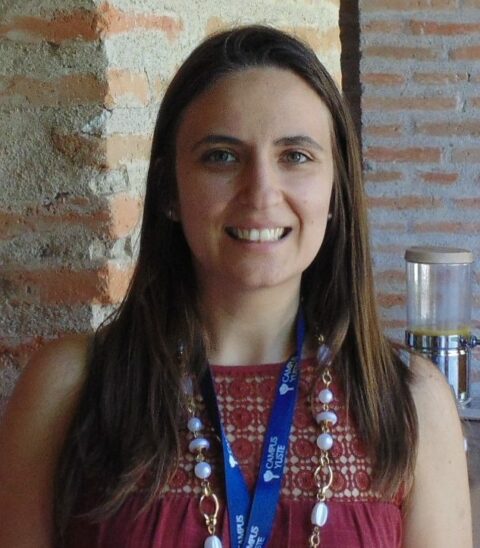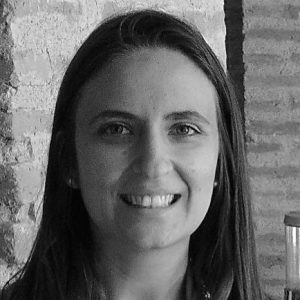I am an optimistic woman. And I believe that each of us – in particular young Europeans – must play an active role in our Europe. But are we too late?
By Maria Pia Di Nonno I am a European citizen. I was born on the 8th September 1989, exactly one day and two month before the fall of the Berlin Wall. This year we celebrate the 28th anniversary of the fall of the Berlin Wall, which was destroyed exactly after 28 years. Now I am 28 years old, I am an adult, but in 1989 I was too young to understand what was happening, even though that moment changed my life completely. As many other young Europeans, born around 1989, I have always benefitted (and I am still benefitting) from this democratic process, even though I have often taken these possibilities for granted. I thought, in fact, that it was an undeniable right to live in a peaceful and democratic community, to travel around Europe, to have friends of different nationalities and to have the chance to find a job in line with my aspirations and dreams. Growing up, I realized how all these achievements cannot be taken for granted and that we have to put all our efforts towards the improvement of our society and fighting against forces that would like to go back to a status where division, rising inequality and disrespect for the others (mainly the most vulnerable) are considered acceptable.
In the same space, but not in the same time
To this regard, as a young European, I would like to launch an appeal to European Institutions to stimulate young citizens to reflect on the past and to not to take all for granted: our values of freedom, peaceful societies and solidarity are at risk now. Louise Weiss, one of the Mothers of Europe, wrote in her memoirs, “(…) les vieillards et les jeunes gens qui coexistent encore dans l’espace (…), ne coexistent plus dans le temps. Ils foulent le même sol, dorment sous les mêmes toits mais, par le fait de l’oubli, habitent des mondes différents.” (“Old and young people live in the same space (…), but they do not live in the same time. They walk on the same ground, their sleep under the same roof, but because of the oblivion, they live in different worlds.”)

What does it mean? It means that Europeans must be aware of the common history and values connecting them. If we forget our past, we can easily fall off the ladder of European values and rights. The Erasmus Program, this year we have celebrated its 30th anniversary, was (and it is continuing to be) one the most effective instrument in this field and I would like to even remember the role played by Sofia Corradi, known as “Mamma Erasmus”, in pursuing this aim. In particular, we should change our storytelling about European history: “History can be told differently; not only as a series of winners and losers, of kings, queens, battles, of wars and hate, but also as the intertwining of peace, useful inventions, cooperation and solidarity between peoples. It is this kind of history that we need to share; particularly in times of crisis”. Robert Schuman too, in one of his most beautiful speech (published in the book “Pour l’Europe”) highlighted the necessity of a “detoxification process” of history. Following this idea two years ago, I took a brave decision: I decided to continue a research I had started in 2014, on the Founding Mothers of Europe and to look for some PhD applications.
The role of European women
I would like to talk now as a young woman. European women should be more conscious of the role that Europe has had in their lives. In the Treaty Establishing the European Economic Community there was inserted an article on the right to equal pay among men and women. I am referring to the famous article 119, that has completely changed the perspective on European women’s rights:
- In 1976, the European Court of Justice recognised for the first time the direct applicability of its article.
- In the same year, the European Commission established two offices concerning women’s issues. Fausta Deshormes La Valle was in charge of managing the Women’s Information Service (DG Information) and Jacqueline Nonon was in charge of Office for Women’s Employment Problems (DG Social Affairs).
- In 1978, Europe had its first female President of EESC (European Economic and Social Committee) Maria Fabrizia Baduel Glorioso.
- In 1979, the European Parliament, elected for the first time by universal suffrage, had its first female president, Simone Veil.
I have mentioned just some of the most important historical steps of women participation in the labour market and in EU institutions, to demonstrate how Europe changed women’s lives and how women changed Europe. For the future, I hope that the European institutions will better recognize the role played by women (and the role they are still playing) to sustain the European integration process. We cannot have a real democracy if we forget that women compose more than an half of the European populations. I take this opportunity even to remember Maria Fabrizia Baduel Glorioso and Simone Veil. Both passed away this year and represent a source of inspiration for me and for many of my friends.
A message of warning …
I am going to conclude with a message of warning and a message of hope, in particular to motivate young Europeans. To do that I tell you two stories. The first one is a personal anecdote often told by Alexandre Marc, the founder of the International Centre for Europe Studies. In 1931, Alexandre was in Germany (precisely in Frankfurt) to take part as a relator in a conference. The room of the event was full of young people. They carefully listened to his speech during the meeting, but their minds and hearts were already captured by National-Socialism. Therefore, at the end of his wonderful performance Alexandre Marc decided to take a walk, trying to forget all his negative thoughts. At a certain point, he stopped to rest in a park and he sat down on a bench. A poor man, seated on the same bench asked to him: “’Are not you from here, right?’ – ‘No, I am not’ – he replied – ‘I am French. – ‘Are you a merchant on a business trip?’ – ‘In a certain way, yes.’ – ‘And what do you sell?’ – ‘I sell an idea, an idea which can not be bought, the idea of peace, justice and fraternity among people, and the unity of all Europeans’. The poor man looked at him quietly and said, ‘It is a good idea, unluckily you are arriving too late’.”
… and a message of hope
There is the story of Domenico Sesta (known as Mimmo) and Luigi Spina, two Italians students that in 1961 had an idea. They built a tunnel (together with some friends), known as Freedom Tunnel, to allow some other friends to escape from East Berlin to West Berlin. They were just some young Europeans, some young students. They were brave and they knew that it was not too late to defend human dignity. Their courage teaches us that young Europeans must not be fearful and demoralized despite the challenges we face today. We have a strong potential to preserve peace, freedom and unity in Europe.
Your tunnel of freedom
And today, are we too late to affirm a different Europe, a Europe based on real common history, values and culture? I am an optimistic woman. And I believe that each of us – in particular young Europeans – must be active players and have to do their best job (also modest contributions) in their communities, in their cities, in their regions, in their States and in our Europe! Many other “tunnels of freedom”, good ideas and innovative solutions are waiting to be discovered and implemented by brave young Europeans, such as Domenico and Luigi. The first idea was to conclude this speech with the question “Are we too late?”, but I have recently changed my mind. I would like to leave with a positive statement: We are not too late! Thank you for your kind attention. — * Maria Pia Di Nonno is a historian at Sapienza Università di Roma and member of the “A Soul for Europe” Strategy Group. She gave her speech on 9 November 2017 at “Die Europa-Rede” in Berlin and kindly agreed on sharing extracts of her manuscript. Photos: Maria Pia Di Nonno
